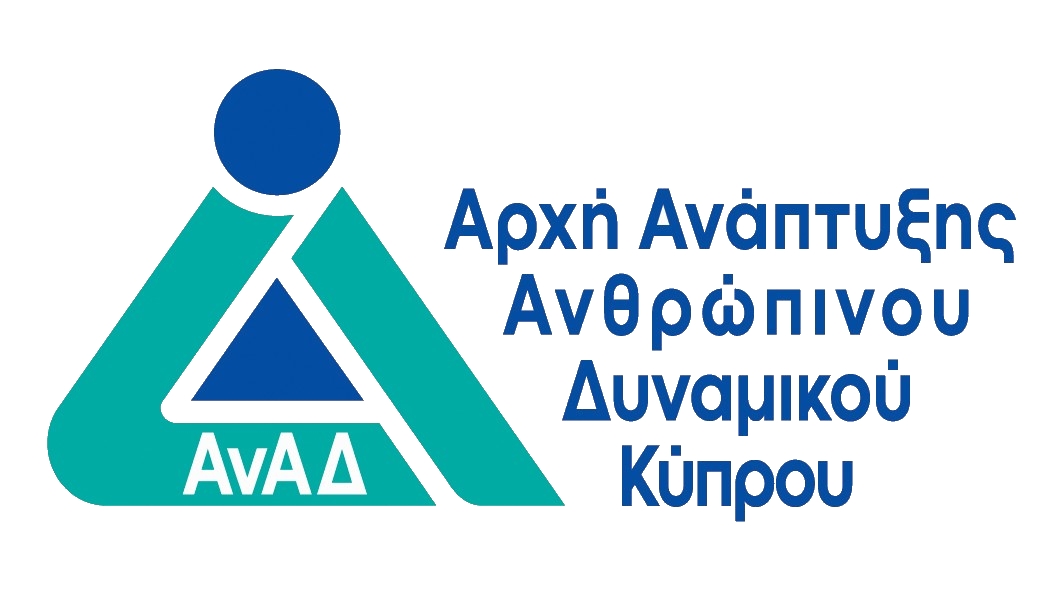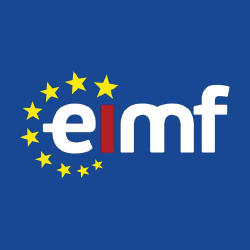AML Compliance and Responsible Gaming Principles in the Betting and Gaming Sector
- Χρηματοοικ. Ασφαλιστικά Τραπεζικά - Νομοθεσία, Νομική & Δικηγόροι


ΠΕΡΙΓΡΑΦΗ
Betting and gaming companies, such as casinos or sports companies , were historically known as being vehicles for money laundering of all kinds and funding of illicit activity. Recent years have seen a significant change in the sector, particularly from a regulatory perspective. There is a perception by many that the industry is lacking in regulatory pressure, which makes it a particularly attractive route for money laundering and terrorist financing.
Betting and Gaming has changed in the last years, mostly shifting to online, with online slot machines, casino games and sports betting becoming increasingly popular. This shift has meant that betting and gaming platforms can be accessed internationally, and payments and withdrawals can be processed at a much faster rate.
The growth of online and mobile channels has added to the challenge of keeping the industry operating within required regulations. Significant risks exist within this sector, largely due to its size, the volume of transactions and the number of people who participate.
Companies that are regulated by the National Betting Authority of Cyprus and the Cyprus Gaming Commission need to practise safe gaming and comply with the Anti-Money Laundering legislation in place, and with the Legislative framework of gaming regulation, in general. The main purpose of these regulations is to minimize or eliminate money laundering and terrorist financing risks in this sector, as well as keep the gaming safe.
ΣΚΟΠΟΣ ΣΕΜΙΝΑΡΙΟΥ
By the end of the programme, participants will be able to:
- Explain the EU and local legal framework regarding Betting and gaming
- Identify the different types of financial crime
- Understand AML procedures which are to be followed by the various authorities and stakeholders
- Identify financial crime risks specific to the organisation
- Identify Money laundering risks in each of the gaming sectors
- Describe compliance best practices and insights for gaming
- Expand your knowledge on gaming customer due diligence
- Name emerging technologies and trends in customer onboarding and reporting
- Understand risks associated with high value customer and politically exposed persons and how to mitigate those risk
- Identify and escalate suspicious activity
- Perform relevant actions based on the legislative framework of gaming regulation
- Understand the principles of Responsible Gaming
- Identify red flags of problem gambling
ΣΕ ΠΟΙΟΥΣ ΑΠΕΥΘΥΝΕΤΑΙ
The programme is ideal for
- C-Level executives (Managing Directors and CEOs, COO)
- BoD members.
- AML compliance officers
- Risk Officers
- Front line persons working in the gaming sector
- Financial controllers
- Accountants
- Lawyers in:
- Betting companies
- Gaming and casino industry
- Regulatory Authorities
- Law Firms and Legal Consultants
- Financial Services Providers
- Software/Technology Providers
- Consulting Firms
- Sports Federations
ΠΕΡΙΣΣΟΤΕΡΕΣ ΠΛΗΡΟΦΟΡΙΕΣ
Training Outline
AML Compliance in the Betting and Gaming Sector
Understanding Anti-Money Laundering (AML)
- Definition and Purpose
- Legal and Regulatory Framework: The Betting Law of 2019, EU AML Directives
- Regulatory environment in Cyprus
Risk Assessment in the Betting and Gaming Industry
- Identifying Potential Risks
- Risk-based approach
- Risk mitigation
Customer Due Diligence (CDD) Procedures
- Identification and Verification
- CDD and EDD measures
- Transaction Monitoring
- Sanctions screening
- Ongoing due diligence
Reporting Suspicious Activities
- Recognizing Red Flags
- Reporting Mechanisms and Protocols
- Post-reporting actions
Role of Employees in AML Compliance
- Training and Awareness
- Responsibilities and Accountability
Responsible Gaming Principles
Definition and Significance of Responsible Gaming
Regulatory Requirements for Responsible Gaming
- Licensing and Compliance
- Responsible Gaming Codes of Conduct
Identifying Problem Gambling
- Signs and Symptoms
- Customer Interaction and Intervention Techniques
Self-Exclusion Programs
- Understanding and Implementing
- Communication Strategies
- Age Verification and Underage Gambling Prevention
- Procedures and Tools
- Legal Implications
Integrating AML and Responsible Gaming
- Synergies and Interconnections: creating a Unified Approach
- Shared Policies and Procedures
- Case Studies and Best Practices
- Success Stories in AML and Responsible Gaming Integration
- Lessons Learned from Industry Leaders
Technology and Tools for Compliance
- AML Software Solutions: overview and selection criteria
- Implementation and Integration
- Responsible Gaming Technologies
- Tools for Monitoring and Intervention
- Data Analytics for Problem Gambling Identification
Training and Development Strategies
- Employee Training Programs: AML Training Modules and Responsible Gaming Workshops
- Continuous Learning and Updates – staying Informed on Regulatory changes, Industry trends and Best Practices
Compliance Monitoring and Auditing
- Internal Controls and Auditing Procedures
- Regular Audits for AML Compliance
- Responsible Gaming Performance Metrics
- Corrective Actions and Continuous Improvement: addressing non-Compliance issues
Training Style
The programme has a practical delivery style with presentations, case studies, practical exercises, and direct-action points that will help participants apply the knowledge learned to keep their organisation compliant and the employees and customers safe.
CPD Recognition
This programme may be approved for up to 12 CPD units in Financial Regulation and AML. Eligibility criteria and CPD Units are verified directly by your association, regulator or other bodies which you hold membership.
This training course may be approved as an external activity under the new ACAMS recertification category ”non-ACAMS credits” for up to 12 CPD units. Eligibility criteria and CPD Units are verified directly by the Association of Anti-Money Laundering Specialists (ACAMS). To read more about the non-ACAMS credits policies and eligibility criteria please click here.
Πληροφορίες Εκπαιδευτή

Geert Vermeulen - Ethics & Compliance Management, Consulting & Training
Αναλυτικό Κόστος Σεμιναρίου
Για Δικαιούχους ΑνΑΔ
- € 530.00
- € 240.00
- € 0.00
- € 290.00
- € 290.00
Για μη-Δικαιούχους ΑνΑΔ
- € 530.00
- € 0.00
- € 100.70
- € 530.00
- € 630.70
ΠΡΟΓΡΑΜΜΑ ΣΕΜΙΝΑΡΙΟΥ
Τετάρτη - 12 Ιουν 2024
Ώρα
09:00 - 16:15
ΕΚΠΑΙΔΕΥΤΗΣ:
Geert VermeulenΤοποθεσία:
OnLine Virtual Classroom
Τετάρτη - 19 Ιουν 2024
Ώρα
09:00 - 16:15
ΕΚΠΑΙΔΕΥΤΗΣ:
Geert VermeulenΤοποθεσία:
OnLine Virtual Classroom
Εκδήλωση Ενδιαφέροντος : AML Compliance and Responsible Gaming Principles in the Betting and Gaming Sector
Σεμινάρια στην ίδια κατηγορία από τον ίδιο διοργανωτή


The Impact of EU Sanctions on Trust Structures...
How are EU sanctions affecting the professional fiduciary industry? This course is designed to assist professional offering fiduciary services navigate through ...
03/04/2025 10:00
2.00 ώρες (1 ημέρα)
Αγγλικά
Live Online


Mastering AML in Cryptocurrency Compliance...
This programme places a strategic emphasis on Crypto, exploring the unique challenges and opportunities it presents in the AML landscape. Throughout the day, pa...
08/04/2025 09:00
7.00 ώρες (1 ημέρα)
Αγγλικά
Επιχορηγημένο-ΑνΑΔ
Live Online


MiFID II/MiFIR Refresher & Decoding of MiFID III/MiFIR 2 Evolution...
MiFID framework reform has been continuously evolving since 2007, introducing a significant number of notable developments – starting from Market in Financial I...
09/04/2025 09:00
6.00 ώρες (1 ημέρα)
Αγγλικά
Επιχορηγημένο-ΑνΑΔ
Live Online


CySEC Certification Examination Preparation Course (Advanced, Basic)...
With a proven track record, the highly successful EIMF CySEC examination preparation course offers an in-depth coverage of all the required material, preparing ...
09/04/2025 16:30
32.00 ώρες (8 μέρες)
Αγγλικά
Επιχορηγημένο-ΑνΑΔ
Live Online


Unlocking Trusts: A Deep Dive into Key Concepts, Types, and Practical ...
The programme will traverse the entire spectrum of trust fundamentals and terminology as well as placing a special focus on dissecting the duties, responsibilit...
10/04/2025 09:00
7.00 ώρες (2 μέρες)
Αγγλικά
Επιχορηγημένο-ΑνΑΔ
Live Online


AML/CTF & KYC: The Management of High-Risk Clients...
There is no business endeavour without taking risks. So, this does not pose a question about not taking risks, but about which risks are worth taking and which...
10/04/2025 10:00
6.00 ώρες (2 μέρες)
Αγγλικά
Επιχορηγημένο-ΑνΑΔ
Live Online


Securing Digital Operations and Mitigating Cyber Threats in Regulated ...
The European Banking Authority (EBA) provides guidelines on information and communication technology (ICT) in the banking and financial services sector. The cou...
15/04/2025 14:00
3.00 ώρες (1 ημέρα)
Αγγλικά
Live Online


Portfolio Management, Investment Analysis, Risk and Regulatory Complia...
The programme aims to provide an overview of investment analysis and risk for CIF, UCITS, and AIF professionals, setting the foundations for the proper conduct ...
23/04/2025 09:00
10.00 ώρες (2 μέρες)
Αγγλικά
Επιχορηγημένο-ΑνΑΔ
Live Online


Anti-Money Laundering and Counter Terrorist Financing (AML & CTF) Regu...
Flows of illicit money can damage the igtntegrity, stability and reputation of the financial sector, and threaten the internal market of the Union a...
24/04/2025 10:00
7.00 ώρες (1 ημέρα)
Αγγλικά
Επιχορηγημένο-ΑνΑΔ
Live Online


CISI Global Financial Compliance...
Course Overview A successful compliance function is a fundamental requirement for any effective business, whereas in financial services it is a critical co...
28/04/2025 10:00
15.00 ώρες (4 μέρες)
Αγγλικά
Επιχορηγημένο-ΑνΑΔ
Live Online


Artificial Intelligence (AI) and Its Significant Role in Financial Mar...
Artificial intelligence (AI) is no longer viewed as a science fiction or futuristic notion. In recent decades, it has been assigned a very significant function ...
29/04/2025 09:00
7.00 ώρες (1 ημέρα)
Αγγλικά
Επιχορηγημένο-ΑνΑΔ
Live Online


CySEC Certification Examination Preparation Course (Advanced, Basic)...
With a proven track record, the highly successful EIMF CySEC examination preparation course offers an in-depth coverage of all the required material, preparing ...
05/05/2025 16:30
32.00 ώρες (8 μέρες)
Αγγλικά
Επιχορηγημένο-ΑνΑΔ
Live Online


Internal Capital Adequacy Assessment Process (ICAAP) for Banks...
Pillar Two requires banks to have a comprehensive internal process for determining their appropriate level of capital (and liquidity). Stress-testing has become...
06/05/2025 10:30
5.00 ώρες (2 μέρες)
Αγγλικά
Live Online


Marketing Communication in Investment Companies and Funds...
The programme aims to deliver an overview of the marketing communication regulations in both investment companies and funds located in Cyprus. It is aimed at pr...
08/05/2025 09:00
5.00 ώρες (1 ημέρα)
Αγγλικά
Live Online


AML/CFT – Typology Based Approach...
In today’s financial landscape, combating Money Laundering is paramount. Two primary strategies can be employed to address this: the Risk-Based Approach an...
08/05/2025 10:00
6.00 ώρες (2 μέρες)
Αγγλικά
Live Online


CRS & FATCA Compliance & Reporting...
The Common Reporting Standard (CRS) is an effort led by the Organization of Economic Cooperation and Development (OECD) and aims to combat tax evasion by imposi...
13/05/2025 09:00
6.00 ώρες (2 μέρες)
Αγγλικά
Επιχορηγημένο-ΑνΑΔ
Live Online


Card Fraud Management & Insider Fraud...
The course is designed to equip professionals with the knowledge and skills to effectively manage card fraud. It covers the latest trends, techniques, and techn...
14/05/2025 09:00
6.00 ώρες (2 μέρες)
Αγγλικά
Live Online


Institutional Portfolio Management for Financial Professionals...
Understanding institutional portfolio management is crucial for financial professionals. It equips them with the knowledge and skills to manage large-scale inve...
15/05/2025 09:00
6.00 ώρες (2 μέρες)
Αγγλικά
Live Online


Smart Contracts Unleashed: Innovation in the Financial Sector...
This a cutting-edge seminar is designed to explore the transformative potential of smart contracts in the financial services and banking industry. As we stand o...
20/05/2025 09:00
14.00 ώρες (4 μέρες)
Αγγλικά
Επιχορηγημένο-ΑνΑΔ
Live Online


Corporate Sustainability Reporting Essentials (CSRD & ESRS)...
In today’s rapidly changing world, the pursuit of sustainable development is not just a choice—it’s an imperative. Organizations all over the globe recognize th...
21/05/2025 09:00
7.00 ώρες (2 μέρες)
Αγγλικά
Επιχορηγημένο-ΑνΑΔ
Live Online


Technology & Financial Crime...
Technology is one of the key pillars in any operational risk framework. In the current environment of advanced analytics solutions, increasing regulatory requir...
21/05/2025 10:00
7.00 ώρες (2 μέρες)
Αγγλικά
Live Online


CySEC AML Certification Examination Preparation Course...
The CySEC AML Certification Examination requires very good knowledge of the Prevention and Suppression of Money Laundering and Terrorist Financing Laws of 20...
21/05/2025 16:30
16.00 ώρες (4 μέρες)
Αγγλικά
Επιχορηγημένο-ΑνΑΔ
Live Online


Fraud Reporting under PSD2 – An Overview of the EBA Guidelines...
In accordance with Article 96(6) of PSD2, Payment Service Providers (PSPs) must provide statistical data on fraud relating to different means of payment to thei...
22/05/2025 09:00
6.00 ώρες (1 ημέρα)
Αγγλικά
Επιχορηγημένο-ΑνΑΔ
Live Online


A Comprehensive Overview of the EU AML Legislative Strategy and the Ro...
This programme will explore the key critical and dedicated EU legislative package associated with the EU Anti-Money Laundering Strategy, approved by the EC...
22/05/2025 10:00
5.00 ώρες (1 ημέρα)
Αγγλικά
Live Online


Free Webinar: Civil and Commercial Mediation in Cyprus: The Case for S...
This webinar will focus on the current efforts by the Cyprus Ministry of Justice and the Cyprus Bar Association to render commercial mediation compulsory for sm...
22/05/2025 16:00
1.00 ώρες (1 ημέρα)
Αγγλικά
Live Online


Best Execution in Financial Markets: Regulatory Updates & Best Practic...
Best Execution requirements under the Markets in Financial Instruments Directive (MiFID) II are designed to ensure investor protection during the execution of c...
26/05/2025 09:00
4.00 ώρες (1 ημέρα)
Αγγλικά
Live Online


Risk-Based Approach for Crypto Asset Services Providers (CASP) and CA ...
The programme will examine how CASPs need to implement the risk-based approach according to the recent FATF updated guidance: “A risk-based approach to virtual ...
28/05/2025 09:00
5.00 ώρες (2 μέρες)
Αγγλικά
Live Online


A Risk Based Approach to Sanctions...
The programme aims to provide the knowledge and insights to effectively address the important area of sanctions. The programme will equip participants with the ...
28/05/2025 09:00
2.00 ώρες (1 ημέρα)
Αγγλικά
Live Online


MiFID II, Sustainability Related Disclosures (SFDR) and ESG Integratio...
The EU has recently adopted a series of regulations relating to Environmental, Social and Governance (ESG) requirements. Sustainable Finance is among the core ...
29/05/2025 09:00
7.00 ώρες (2 μέρες)
Αγγλικά
Επιχορηγημένο-ΑνΑΔ
Live Online


Effective Whistleblowers’ Protection: A New Law for Ensuring an Organi...
Wrongdoing, and in particular that which takes place in the corporate environment, is often committed in secret for a long time, during which time, non-involved...
29/05/2025 10:00
6.00 ώρες (2 μέρες)
Αγγλικά
Live Online


CySEC Certification Examination Preparation Course (Advanced, Basic)...
With a proven track record, the highly successful EIMF CySEC examination preparation course offers an in-depth coverage of all the required material, preparing ...
02/06/2025 16:30
32.00 ώρες (8 μέρες)
Αγγλικά
Επιχορηγημένο-ΑνΑΔ
Live Online


AGRC Certificate in KYC and CDD...
The Association of Governance, Risk & Compliance (AGRC) Certificate in KYC and CDD equips professionals, who work in regulated companies and are obliged to comp...
03/06/2025 09:00
14.00 ώρες (2 μέρες)
Αγγλικά
Επιχορηγημένο-ΑνΑΔ
Live Online


The Internal Capital Adequacy and Risk Assessment Process (ICARA): IFR...
The ICARA process is a continuing risk management process within the firm, although a formal ICARA review will usually only be required annually or immediately ...
03/06/2025 09:00
5.00 ώρες (2 μέρες)
Αγγλικά
Live Online


Investor Protection Updates...
MiFID II includes numerous provisions on investor protection especially as far as retail investors are concerned. Emphasis is given mainly to the information to...
04/06/2025 09:00
6.00 ώρες (2 μέρες)
Αγγλικά
Επιχορηγημένο-ΑνΑΔ
Live Online


AML, KYC, CDD: The Effective Application of a Risk-Based Approach...
The risk-based approach is an important element in designing an effective anti-money laundering program. Employees are required to understand how the risk-based...
04/06/2025 09:00
6.00 ώρες (1 ημέρα)
Αγγλικά
Επιχορηγημένο-ΑνΑΔ
EIMF (Λευκωσία)


The Main Principles of Cyprus Trusts...
Cyprus law has a long history on trusts with two separate trust laws, one being for local trusts and another one for internation trusts. Its first law was based...
04/06/2025 09:00
5.00 ώρες (2 μέρες)
Αγγλικά
Live Online


MiFID II, Sustainable Finance, and ESG Integration: Navigating the Reg...
The introduction of sustainability preferences into the MiFID II suitability assessment represents a pivotal development for financial market participants, advi...
05/06/2025 09:00
7.00 ώρες (1 ημέρα)
Αγγλικά
Επιχορηγημένο-ΑνΑΔ
Live Online


AI-Powered eKYC Solutions for Fraud Prevention in the Financial Indust...
This course has been designed to address the unique challenges and requirements of the financial industry, providing professionals with the knowledge and tools ...
11/06/2025 09:00
5.00 ώρες (2 μέρες)
Αγγλικά
Live Online


How To Conduct Third Party Due Diligence...
Conducting third party due diligence is by far the most important anti-corruption control, and there are some important differences compared to conducting custo...
11/06/2025 11:00
5.00 ώρες (2 μέρες)
Αγγλικά
Live Online


DEI for Personal and Professional Impact...
This seminar is designed to introduce professionals to the essential concepts of Diversity, Equity, and Inclusion (DEI) and to empower them to contribute positi...
12/06/2025 09:00
4.00 ώρες (1 ημέρα)
Αγγλικά
Live Online


Lobbying Procedures in Cyprus – Principles and Provisions of Law of 20...
Lobbying is defined as any attempt by individuals or private interest groups to influence the decisions of government. Lobbying, on behalf of a group or ind...
16/06/2025 09:00
10.00 ώρες (2 μέρες)
Ελληνικά
Επιχορηγημένο-ΑνΑΔ
Live Online


CySEC AML Certification Examination Preparation Course...
The CySEC AML Certification Examination requires very good knowledge of the Prevention and Suppression of Money Laundering and Terrorist Financing Laws of 20...
16/06/2025 16:30
16.00 ώρες (4 μέρες)
Αγγλικά
Επιχορηγημένο-ΑνΑΔ
Live Online


Financial Regulation and Compliance...
The regulatory framework pertaining to the financial and professional services sector is constantly changing, and new regulations, as well as updates to existin...
17/06/2025 09:00
10.00 ώρες (2 μέρες)
Αγγλικά
Επιχορηγημένο-ΑνΑΔ
Live Online


Leadership Skills for Compliance Professionals...
Participants in this course embark on a transformative journey, delving into the multifaceted dimensions of compliance leadership. From understanding the intric...
17/06/2025 09:00
20.00 ώρες (4 μέρες)
Αγγλικά
Επιχορηγημένο-ΑνΑΔ
Live Online


Alternative Dispute Resolutions (ADR): An Introduction...
Have you ever wondered if there’s a faster, cheaper, and less stressful way to resolve disputes without going to court? Alternative Dispute Resolution (ADR) pr...
18/06/2025 09:00
7.00 ώρες (2 μέρες)
Αγγλικά
Live Online


The EU Regulatory Disclosure Framework for Managing ESG Risks by Finan...
The EU Supervisory authorities concur that the Environmental, Social and Governance (ESG) risks to financial institutions can be defined as risks that stem from...
18/06/2025 10:00
6.00 ώρες (2 μέρες)
Αγγλικά
Επιχορηγημένο-ΑνΑΔ
Live Online


What Compliance Officers Need To Know: Regulatory Developments and the...
The programme aims at providing participants with an update on all the major regulatory and legislative developments at an EU level as well as within the Cyprus...
19/06/2025 09:00
10.00 ώρες (2 μέρες)
Αγγλικά
Επιχορηγημένο-ΑνΑΔ
Live Online


Cyprus Tort Law – The Basics...
What is a Tort? Torts are a fundamental part of law that we encounter regularly, often without realising it. This programme will provide an essential overview ...
23/06/2025 09:00
6.00 ώρες (2 μέρες)
Αγγλικά
Live Online


DFSA Regulatory Compliance CPD Programme...
Financial services rules and regulations apply to all firms regulated by the DFSA. These rules and guidelines are intended to safeguard customers when they tran...
24/06/2025 09:00
15.00 ώρες (3 μέρες)
Αγγλικά
Live Online


Financial Promotion and Marketing Compliance...
The programme aims to deliver an overview of how the financial promotion and marketing compliance has changed with the most recent directives, circulars, and le...
24/06/2025 09:00
10.00 ώρες (2 μέρες)
Αγγλικά
Επιχορηγημένο-ΑνΑΔ
Live Online


Corporate Sustainability Due Diligence (CSDD)...
In today’s global business environment, the importance of corporate sustainability due diligence (CSDD) cannot be overstated. Companies are increasingly held ac...
25/06/2025 09:00
4.00 ώρες (1 ημέρα)
Αγγλικά
Επιχορηγημένο-ΑνΑΔ
Live Online


MiFID II Product Governance & Preparation of Key Information Documents...
Course Overview This program is intended for Investment Professionals engaged in designing and selling financial products, and for Compliance Professionals w...
25/06/2025 15:30
5.00 ώρες (2 μέρες)
Αγγλικά
Live Online


EIMF Certificate in Blockchain & Crypto-Assets: Regulation and Policy...
Blockchain technology – the distributed platform that removes intermediaries from the equation and resolves the trust issue – has brought fundamental changes to...
26/06/2025 09:00
14.00 ώρες (3 μέρες)
Αγγλικά
Επιχορηγημένο-ΑνΑΔ
Live Online


Ethics, Integrity and Fairness in Financial Services...
Firms and individuals operating in the sector must be conscious and mindful of these standards and expectations and consider both whether they are satisfying th...
31/01/2026 02:37
Αγγλικά
eLearning


Compliance Essentials...
ACompliance Essentials provides comprehensive coverage of the key compliance / conduct issues that financial services sector companies face today. It provides 8...
31/01/2026 02:37
Αγγλικά
eLearning


CASS Introduction...
A short online e-learning primer aimed as an introductory overview for those encountering Client Money and Client Assets for the first time, and for those worki...
31/01/2026 02:37
Αγγλικά
eLearning


Anti-Money Laundering for Law Firms...
Reduce risk and safeguard your business. Created in partnership with industry experts, our training is designed to develop the right behaviours and deliver bett...
31/01/2026 02:37
Αγγλικά
eLearning


Best Execution...
The FCA rules relating to Best Execution cover all ‘financial instruments’. Firms must establish and implement a Best Execution Policy, setting out details of h...
31/01/2026 02:37
Αγγλικά
eLearning


EKK (CySEC) Ερωτήσεις Προετοιμασίας Βασικής Εξέτασης...
Περιγραφή Τρεις (3) Εξετάσεις Ποετοιμασίας για τη Βασική Εξέταση της Επιτροπής Κεφαλαιαγοράς Κύπρου (ΕΚΚ) στα Ελληνικά.. ...
31/01/2026 02:37
Ελληνικά
eLearning


Foreign Account and Tax Compliance Act (FATCA) & Common Reporting Stan...
This course gives an in-depth overview of the two major documents that shape today’s international tax environment: the U.S. Foreign Account and Tax Compliance ...
31/01/2026 02:37
Αγγλικά
eLearning


Corporate Governance for Financial Institutions...
The concept/term Corporate Governance has featured regularly in discussions, both within the professional and academic community, since the 1990s and has become...
31/01/2026 02:37
Αγγλικά
eLearning


Insider Dealing and Market Manipulation...
Description This course will provide a comprehensive introduction to the Market Abuse Regulation's definitions on insider information and inside dealing. It ...
31/01/2026 02:37
Αγγλικά
eLearning


Fundamentals of Risk Management...
Description This course offers a condensed review of risk management, with a specific focus on operational, credit and market risks. The course also covers r...
31/01/2026 02:37
Αγγλικά
eLearning


Anti-Money Laundering and Counter Terrorist Finance...
This course provides staff with an understanding of the process of money laundering, the laws and regulations that make it illegal, and the responsibilities of ...
31/01/2026 02:37
Αγγλικά
eLearning


The Regulation of Pre-Paid Funeral Plans...
This course provides a foundational understanding of the evolving regulatory landscape for pre-paid funeral plans. It offers a clear and concise overview of the...
31/01/2026 02:37
Αγγλικά
eLearning


Financial Promotions Regulations...
This course looks at the key rules and requirements to issue complaint financial promotions and maintain appropriate oversight and control of your financial pro...
31/01/2026 02:37
Αγγλικά
eLearning


Information Security for Law Firms...
This specialized course is tailored for law firms, providing essential knowledge and practical skills to navigate data protection obligations and cybersecurity ...
31/01/2026 02:37
3.00 ώρες (1 ημέρα)
Αγγλικά
eLearning


European Market Infrastructure Regulation (EMIR) Overview...
Description This course offers a comprehensive overview of the EMIR. It addresses the EMIR requirements, the types of counterparties and the clearing obligat...
31/01/2026 02:37
Αγγλικά
eLearning


Market Abuse and Regulation...
Description This course will provide a comprehensive review of Market Abuse and the respective regulatory environment. It will cover inside information and i...
31/01/2026 02:37
Αγγλικά
eLearning


CISI International Introduction to Investment...
Description The International Introduction to Investment offers a broad introduction to the financial services professional sector, with a specific focus on ...
31/01/2026 02:37
Αγγλικά
eLearning


EU AI Act...
The European Union’s (“EU”) artificial intelligence (“AI”) Act (the “EU AI Act”) represents a landmark legislative initiative designed to govern the develo...
31/01/2026 02:37
Αγγλικά
eLearning


AIF - Alternative Investment Funds...
Description This course offers a comprehensive introduction to the Alternative Investment Funds (AIF). It addresses national and EU issues, reflecting the le...
31/01/2026 02:37
Αγγλικά
eLearning


Introduction to Know Your Client (KYC) and Customer Due Diligence (CDD...
KYC/CDD is a critical element for effectively managing the risks posed by potential clients, thus protecting the organization against criminals, terrorists, and...
31/01/2026 02:37
Αγγλικά
eLearning


Best Execution Overview...
Best execution is the achievement to provide clients with the best possible outcome for their transactions. Investment Firms need to take all necessary and suff...
31/01/2026 02:37
Αγγλικά
eLearning


Market in Crypto-Assets Regulation (MiCA) Overview...
In recent years, the landscape of finance has undergone a transformative shift with the emergence of cryptocurrency and blockchain technology. As these digital ...
31/01/2026 02:37
Αγγλικά
eLearning


The Fund Industry: Latest Regulatory Framework...
Description This course offers a comprehensive introduction to AIF, AIFM, AIFMD, and UCITS. It addresses the various categories and legal forms of AIFs, the ...
31/01/2026 02:37
Αγγλικά
eLearning


UCITS - Undertakings for Collective Investments in Transferable Securi...
Description This course offers a comprehensive introduction to the Undertakings for Collective Investments in Transferable Securities (UCITS). It addresses t...
31/01/2026 02:37
Αγγλικά
eLearning


Advanced Anti-Money Laundering for Financial Institutions...
This comprehensive course provides an in-depth exploration of Anti-Money Laundering (AML) strategies, criminal activities, and regulatory frameworks. Desig...
31/01/2026 02:37
Αγγλικά
eLearning


Ethics and Compliance...
This course will help you to increase your personal ethics and explore your obligations to act with integrity in all aspects of your work and professional relat...
31/01/2026 02:37
Αγγλικά
eLearning


GDPR General Data Protection Regulation Staff Awareness...
Description This course examines GDPR from a Staff Awareness perspective. You will appreciate the need, scope and concepts of GDPR as well as learn about the...
31/01/2026 02:37
Ελληνικά
eLearning


Finance for Law Firms...
This course is tailored for law firms and practicing lawyers, providing essential insights and practical knowledge to navigate legal compliance and mitigate ass...
31/01/2026 02:37
2.00 ώρες (1 ημέρα)
Αγγλικά
eLearning


Digital Operational Resilience Act (DORA)...
Understand DORA key definitions, terms and provisions from a wide range of internal and external challenges, disruptions, and shocks. Organisational resil...
31/01/2026 02:37
Αγγλικά
eLearning


Non-Financial Misconduct (Small & Medium-size Firms)...
Welcome to our course covering the FCA proposed rules in respect of Diversity and Inclusion (D&I) and Non-Financial Misconduct (NFM). NOTICE: THIS CO...
31/01/2026 02:37
Αγγλικά
eLearning


Conflict of Interest (COI)...
Conflict of Interest Course (FCA) This course provides staff with an understanding of Conflict of Interest, the laws and regulations that make it illegal, and t...
31/01/2026 02:37
Αγγλικά
eLearning


SRA Standards and Regulations...
The Solicitors Regulation Authority (SRA) Standards and Regulations 2019 are the framework for the regulation of solicitors and law firms in England and Wales. ...
31/01/2026 02:37
2.00 ώρες (1 ημέρα)
Αγγλικά
eLearning


Compliance Monitoring and Testing...
This course explores what to consider when building a compliant Compliance Monitoring programme and how to effectively deliver reports. It considers the FCA’s r...
31/01/2026 02:37
Αγγλικά
eLearning


Anti-Money Laundering (AML) for Legal Professionals and DNFBPs...
Designated Non-Financial Businesses and Professionals must have in place and implement procedures in order to identity a person (KYC) and also exercise an inves...
31/01/2026 02:37
Αγγλικά
eLearning


Sustainable Finance Disclosure Regulation (SFDR) and other ESG Initiat...
Sustainable Finance refers to any form of financial service integrating Environmental, Social and Governance (ESG) criteria into the business or investment...
31/01/2026 02:37
Αγγλικά
Επιχορηγημένο-ΑνΑΔ
eLearning


CySEC 15 CPD Bundle 1...
The course includes: MiFID II Overview European Market Infrastructure Regulation (EMIR) Overview Anti-Money Laundering and Terrorism Financing Fundame...
31/01/2026 02:37
Αγγλικά
eLearning


CySEC 10 CPD Bundle 1...
The CPD bundle includes the following modules – Cybersecurity Awareness, Digital Operational Resilience Act (DORA), and Fundamentals of Environmental, Social & ...
31/01/2026 02:37
Αγγλικά
eLearning


CySEC 10 CPD Bundle 2...
The course includes: Anti-Money Laundering and Terrorism Financing Fundamentals Fundamentals of Risk Management Market Abuse Regulation Ove...
31/01/2026 02:37
Αγγλικά
eLearning


CySEC 10 CPD Bundle 4...
The course includes: European Market Infrastructure Regulation (EMIR) Overview Practical Aspects of the Compliance Function Ethics and Compliance ...
31/01/2026 02:37
Αγγλικά
eLearning


CySEC 20 CPD Bundle 3...
The course includes: ICAAP – Internal Capital Adequacy Assessment Process Fundamentals of Environmental, Social & Governance (ESG) Reporting & Complianc...
31/01/2026 02:37
Αγγλικά
eLearning


AIFM - Alternative Investment Fund Managers...
Description This course offers a comprehensive introduction to the Alternative Investment Fund Managers (AIFM). It addresses the application of the AIFM Law,...
31/01/2026 02:37
Αγγλικά
eLearning


CySEC 20 CPD Bundle 4...
The course includes: Anti-Bribery and Anti-Corruption Anti-Money Laundering and Terrorism Financing Fundamentals Corporate Governance for Financial In...
31/01/2026 02:37
Αγγλικά
eLearning


CySEC 10 CPD Bundle 3...
The course includes: ICAAP – Internal Capital Adequacy Assessment Process Financial Crime Risk Management Ethics and Compliance ...
31/01/2026 02:37
Αγγλικά
eLearning


CySEC 10 CPD Bundle 8...
The course includes: Market Abuse Regulation Overview Best Execution Overview Ethics, Integrity and Fairness in Financial Services Digital Operation...
31/01/2026 02:37
Αγγλικά
eLearning


CySEC 20 CPD Bundle 7...
The course includes: Governance, Risk Management and Compliance Fundamentals of Environmental, Social & Governance (ESG) Reporting & Compliance Ethics...
31/01/2026 02:37
Αγγλικά
eLearning


CySEC 15 CPD Bundle 8...
The course includes: Advanced Anti-Money Laundering for Financial Institutions International Economic Sanctions Product Governance, Suitability and Ap...
31/01/2026 02:37
Αγγλικά
eLearning


CySEC 20 CPD Bundle 8...
The course includes: Advanced Anti-Money Laundering for Financial Institutions Know your Client (KYC) and Customer Due Diligence (CDD) ICAAP – Interna...
31/01/2026 02:37
Αγγλικά
eLearning


CySEC 15 CPD Bundle 5...
The course includes: Corporate Governance for Financial Institutions International Economic Sanctions Fundamentals of Environmental, Social & Governan...
31/01/2026 02:37
Αγγλικά
eLearning


AGRC Certificate in Corporate Governance...
The Certificate in Corporate Governance provides participants with a thorough understanding of a topic that has gained increasing significance and attentio...
31/01/2026 02:37
Αγγλικά
eLearning


CySEC 10 CPD Bundle 7...
The course includes: International Economic Sanctions Know your Client (KYC) and Customer Due Diligence (CDD) Training Duration ...
31/01/2026 02:37
Αγγλικά
eLearning


CySEC 15 CPD Bundle 7...
The course includes: Governance, Risk Management and Compliance ICAAP – Internal Capital Adequacy Assessment Process Digital Operational Resilience Ac...
31/01/2026 02:37
Αγγλικά
eLearning


CySEC 15 CPD Bundle 4...
The course includes: Fundamentals of Environmental, Social & Governance (ESG) Reporting & Compliance Financial Crime Risk Management Digital Operation...
31/01/2026 02:37
Αγγλικά
eLearning


CySEC 20 CPD Bundle 1...
The course includes: Risk Based Approach (RBA) to Anti Money Laundering AML Suspicious Activity Reports and Suspicious Transaction Reports (SAR/STRs) ...
31/01/2026 02:37
Αγγλικά
eLearning


CySEC 10 CPD Bundle 5...
The course includes: AML Suspicious Activity Reports and Suspicious Transaction Reports (SAR/STRs) Market Abuse Regulation Overview Best Execution Ove...
31/01/2026 02:37
Αγγλικά
eLearning


CySEC 15 CPD Bundle 2...
The course includes: The Fund Industry: Latest Regulatory Framework Sustainable Finance Disclosure Regulation (SFDR) and other ESG Initiatives ...
31/01/2026 02:37
Αγγλικά
eLearning


CySEC 20 CPD Bundle 2...
The course includes: Advanced Anti-Money Laundering for Financial Institutions International Economic Sanctions Sustainable Finance Disclosure Regulat...
31/01/2026 02:37
Αγγλικά
eLearning


CySEC 15 CPD Bundle 6...
The course includes: Insider Dealing and Market Manipulation European Market Infrastructure Regulation (EMIR) Overview Treating Customers Fairly and H...
31/01/2026 02:37
Αγγλικά
eLearning


CySEC 15 CPD Bundle 3...
The course includes: Market Abuse and Regulation Treating Customers Fairly and Handling Complaints in the Financial Services Sector ...
31/01/2026 02:37
Αγγλικά
eLearning


Non-Financial Misconduct...
Welcome to our course covering the FCA proposed rules in respect of Diversity and Inclusion (D&I) and Non-Financial Misconduct (NFM). By the...
31/01/2026 02:37
Αγγλικά
eLearning


CySEC 20 CPD Bundle 6...
The course includes: Best Execution Overview AIF – Alternative Investment Funds Understanding Securities Financing Transaction Regulation – SFTR Fin...
31/01/2026 02:37
Αγγλικά
eLearning


Modern Slavery and Human Trafficking...
In this concise yet impactful course on Modern Slavery and Human Trafficking Participants will gain essential insights into the critical issues surrounding thes...
31/01/2026 02:37
Αγγλικά
eLearning


Sales Compliance and Techniques for Investment Firms (5 CPD Units)...
DESCRIPTION This course aims, is to assist professionals in investment firms, in particularly those whose primary function is within the Sales, customer rete...
31/01/2026 02:37
Αγγλικά
eLearning


Sales, Marketing & Customer Services...
In today’s competitive business landscape, effective communication, empathy, and problem-solving skills are crucial for success in sales, marketing, and custome...
31/01/2026 02:37
Αγγλικά
eLearning


Fraud Detection and Prevention...
Fraud is usually defined by domestic regulators as taking place within a ‘given industry’ and within the broader legal framework, in a ‘given country’. Unethica...
31/01/2026 02:37
Αγγλικά
eLearning


MiFIR Transaction Reporting...
DESCRIPTION MiFID II/MiFIR which came into effect on 3 January 2018, is a new legislative framework which aims to strengthen investor protection and improve th...
31/01/2026 02:37
5.00 ώρες (1 ημέρα)
Αγγλικά
eLearning


Financial Promotion and Marketing Compliance...
Description This course examines the role of the regulatory framework and competent authorities in countries such as the UK, Malta, the US, Cyprus and German...
31/01/2026 02:37
Αγγλικά
eLearning


Product Governance, Suitability and Appropriateness...
DESCRIPTION The product governance regime aims to ensure that firm’s act in a client’s best interests, including funds and related management services, to en...
31/01/2026 02:37
Αγγλικά
eLearning


CySEC 20 CPD Bundle 5...
The course includes: The Fund Industry: Latest Regulatory Framework Know your Client (KYC) and Customer Due Diligence (CDD) Risk Based Approach (RBA) ...
31/01/2026 02:37
Αγγλικά
eLearning


Governance, Risk Management and Compliance (4 CPD Units)...
The self-based online training programme provides the participants with a broad range of areas addressed in a Governance, Risk and Compliance (GRC) model. Parti...
31/01/2026 02:37
Αγγλικά
eLearning


AGRC Certificate in Compliance...
Faced with increasingly regulated environment, this programme offers insight into good compliance practices and the skills to lead effective compliance programm...
31/01/2026 02:37
Αγγλικά
eLearning


CySEC 10 CPD Bundle 6...
The course includes: Financial Regulation: The International Regulatory Environment Governance, Risk Management and Compliance Digital Operational Res...
31/01/2026 02:37
Αγγλικά
eLearning


Anti-Money Laundering and Terrorism Financing Fundamentals...
Effective Anti-Money Laundering (AML) programs – to ensure AML compliance — are a fundamental requirement for obliged entities. Ensuring effective policies, pro...
31/01/2026 02:37
Αγγλικά
eLearning


CySEC 20 CPD Bundle 10...
The course includes: Advanced Anti-Money Laundering for Financial Institutions Know your Client (KYC) and Customer Due Diligence (CDD) ICAAP – Interna...
31/01/2026 02:37
Αγγλικά
eLearning


CySEC 15 CPD Bundle 9...
The course includes: Advanced Anti-Money Laundering for Financial Institutions International Economic Sanctions Product Governance, Suitability and Ap...
31/01/2026 02:37
Αγγλικά
eLearning


CySEC 20 CPD Bundle 9...
The course includes: Advanced Anti-Money Laundering for Financial Institutions Know your Client (KYC) and Customer Due Diligence (CDD) ICAAP – Interna...
31/01/2026 02:37
Αγγλικά
eLearning


Corporate and Social Responsibility for Law Firms...
The legal profession is increasingly recognizing its role in addressing social and environmental challenges. This course explores the concept of corporate socia...
31/01/2026 02:37
Αγγλικά
eLearning


European Investment Funds: a Comprehensive Guide to UCITS, AIFs, Struc...
This course provides a comprehensive overview of European investment funds, focusing on their structure, regulation, and emerging trends. Participants will gain...
31/01/2026 02:37
Αγγλικά
eLearning


CySEC AML Certification Examination Practice and Mock Exams...
A set of 5 full Mock & Revision Exams in English for the latest CySEC AML Certification Examination Syllabus. Registration and Access To register to this ...
31/01/2026 02:37
Αγγλικά
eLearning


Market Abuse Regulation Overview...
This course offers a condensed review of Market Abuse Regulation (MAR). It addresses the characteristics of market abuse and the impact on firms and individuals...
31/01/2026 02:37
Αγγλικά
eLearning


Compliance Introduction...
Compliance involves the efforts and programs of an organization to ensure that the business complies with government and industry regulations. If your organizat...
31/01/2026 02:37
Αγγλικά
eLearning


CySEC Advanced Examination Practice and Mock Exams...
Description A set of 6 full Mock & Revision Exams in English for the latest CySEC Advanced Examination Syllabus. ...
31/01/2026 02:37
Αγγλικά
eLearning


Fundamentals of Investment and Finance...
Description This course offers a general review of the financial services sector, with a specific focus on investments from a global perspective. The focus o...
31/01/2026 02:37
Αγγλικά
eLearning


Risk Management for Law Firms...
This short course provides participants with a comprehensive understanding of risk management principles and practices specifically tailored to the legal indust...
01/02/2026 02:37
2.00 ώρες (1 ημέρα)
Αγγλικά
eLearning


Practical Aspects of the Compliance Function...
Description This course offers a practical review of the compliance function. It addresses the roles, responsibilities and mission of the compliance officer,...
01/02/2026 02:37
Αγγλικά
eLearning
 Ελληνικά
Ελληνικά  English
English




 Αγγλικά
Αγγλικά
 12 ώρες
(
2 μέρες
)
12 ώρες
(
2 μέρες
)
